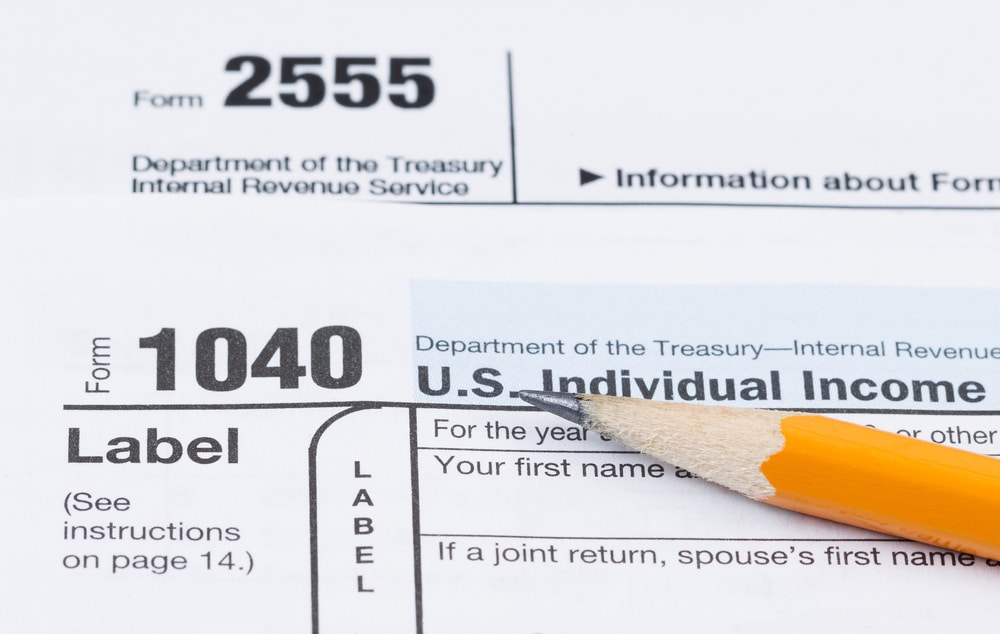FEIE Vs. FTC: Which Is Better For Avoiding Double Taxation?

The U.S. taxes its citizens wherever they are in the world. However, this puts them at risk of double taxation. That is, their income can be taxed by both the U.S. and the country where they work. Fortunately, the Internal Revenue Service (IRS) offers two options to reduce this impact: the Foreign Earned Income Exclusion (FEIE) and the Foreign Tax Credit (FTC).
You must understand these two tax benefits to avoid getting double-taxed while working or living abroad. This article will discuss the FEIE vs. the FTC to determine your better option.
FEIE vs. FTC: Four Key Differences Every Expat Should Know
These two tax advantages differ at their very core, especially in the type of income they are being applied to. Here are five key differences you should know between FEIE and FTC.
1. Objective
The FEIE aims to help you exclude all or some foreign income from your U.S. taxes. Meanwhile, the FTC reduces your U.S. income tax liability. Only income, war profits, and excess profits taxes qualify for the FTC.
2. Tax advantage limit
FEIE amount is adjusted annually for inflation.
3. Forms to file
You must file Form 2555 along with Form 1040 or 1040X when claiming the FEIE. If you and your spouse both qualify to claim the FEIE, you must file separate Form 2555s. In some cases, you can also file Form 673 with your U.S. employer to claim an exemption from U.S. income tax withholding on your foreign-earned wages.
When it comes to the FTC, you must file Form 1116.
4. Qualifying tests
To qualify for the FEIE, you must pass either the Bona Fide Residence Test or the Physical Presence Test.
The Bona Fide Residence Test requires that you be a bona fide resident of a foreign country for an uninterrupted period. You can make short trips back to the U.S. provided you return to your foreign bona fide residence without unreasonable delays. Suppose you remained in one country for work and became a resident within 2019. Then, you can claim the FEIE in 2020.
As for the Physical Presence Test, you must be physically present in a foreign country for at least 330 full days within a 12-month period. You don’t necessarily have to stay in only one country for a year. You can still pass the Physical Presence Test if you are outside the U.S. for that duration.
To qualify for FTC:
- The tax must be a legal and actual foreign tax liability
- The tax must be imposed on you
- You must have paid or accrued the tax
- The tax must be an income tax
FEIE vs. FTC: Which is Better for U.S. Expats?
While both the FEIE and FTC offer distinct differences, neither of them is better than the other. The best tax advantage solely depends on your economic situation and the tax laws of your resident country. Here are some factors you should consider when deciding which tax benefit to use.
1. Foreign tax liability
Between the two tax advantages, the FTC can only help you reduce your tax liabilities. However, it won’t apply if you don’t pay foreign income taxes.
2. Residence status
The FEIE is more particular about your legal residence abroad than the FTC. To claim the FEIE, you must pass either the Bona Fide Residence Test or the Physical Presence Test. Generally, you should spend less than 35 days in the U.S. each year to qualify for this tax advantage.
The FTC is less stringent. You can apply for tax credit no matter where you live and how long you stay there.
3. Source of income
If your only income is foreign wages, then the FEIE may be ideal as it only applies to income from your wages.
If you want to enjoy more tax benefits, you can claim the FTC as it applies to both earned and passive income, such as interest and dividends.
4. Tax rules and regulations of the expat’s country of residence
The FTC is ideal for U.S. expats who pay foreign income taxes higher than the U.S. rate. The excess tax credits can be carried over following the next 10 years of the unused foreign tax credit.
5. Children
If you have children, you can claim either the U.S. Child Tax Credit or the FEIE. The former refunds $1,400 per child if the parents are free from U.S. taxes.
Although it’s possible to claim both the FEIE and FTC, they can’t be applied to the same income. Generally, the FEIE is ideal if the tax rate in your host country is lower than that of the U.S. Meanwhile, you might benefit more from the FTC if the tax rate in your host country is higher than that of the U.S.
Also, switching from FEIE one year to FTC the next year is possible. However, you can only switch back to FEIE after five years.
Claim Your Tax Benefits Today
Whether you want to apply for FEIE or FTC, both tax advantages can reduce your tax payments and avoid facing double taxation. As a U.S. expat, your tax liability doesn’t have to be an added layer of a challenge on top of working or living abroad.
That said, you should hire an international tax expert, such as Tax Samaritan, to help you claim tax advantages and comply with tax laws in the U.S. and your resident country.
We offer best-in-class tax resolution services to help taxpayers settle their tax problems with the IRS such as liens, tax audits, back tax returns, levies, and wage garnishment. Visit our website to learn more.

All About Randall Brody
Randall is the Founder of Tax Samaritan, a boutique firm specializing in the preparation of taxes and the resolution of tax problems for Americans living abroad, as well as the other unique tax issues that apply to taxpayers. Here, they help taxpayers save money on their tax returns.